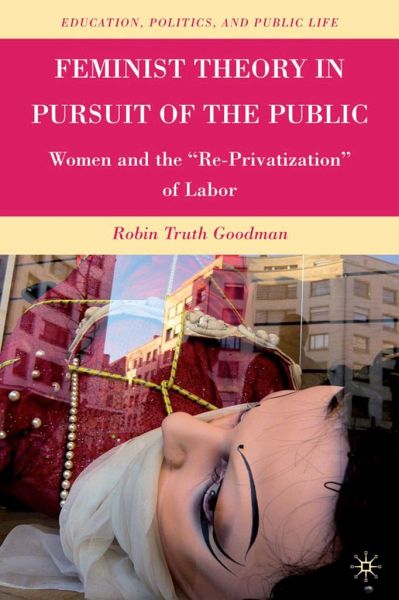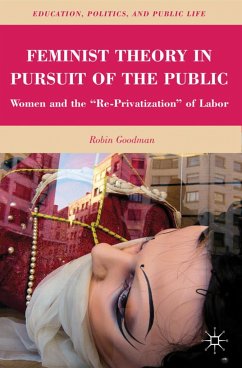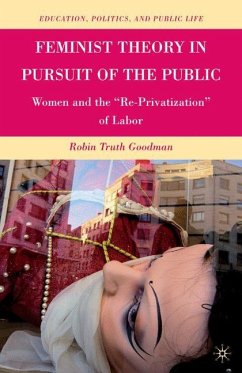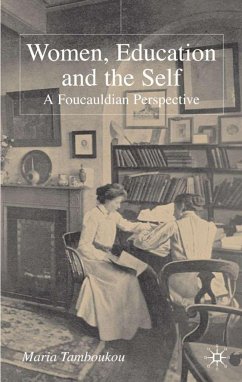
Feminist Theory in Pursuit of the Public
Women and the "Re-Privatization" of Labor
Versandkostenfrei!
Versandfertig in 6-10 Tagen
38,99 €
inkl. MwSt.
Weitere Ausgaben:

PAYBACK Punkte
19 °P sammeln!
Feminist Theory in Pursuit of the Public argues that feminism needs to develop a theory of the public. It responds to a moment when feminism's impetus to reconstitute the private sphere left a huge gap in its political thinking on the public. This inattention to the public is particularly worrisome now when the nation-state and its publics seem to have diminishing power and compromised democratic agency. The waning of power in the public sphere diminishes the influence that citizens can have in deciding on the conditions of life, and therefore minimizes the changes that feminists can envision ...
Feminist Theory in Pursuit of the Public argues that feminism needs to develop a theory of the public. It responds to a moment when feminism's impetus to reconstitute the private sphere left a huge gap in its political thinking on the public. This inattention to the public is particularly worrisome now when the nation-state and its publics seem to have diminishing power and compromised democratic agency. The waning of power in the public sphere diminishes the influence that citizens can have in deciding on the conditions of life, and therefore minimizes the changes that feminists can envision or enact in the social field to work towards equality, access, deliberation, participation, just distribution, rights, and authority for women.














